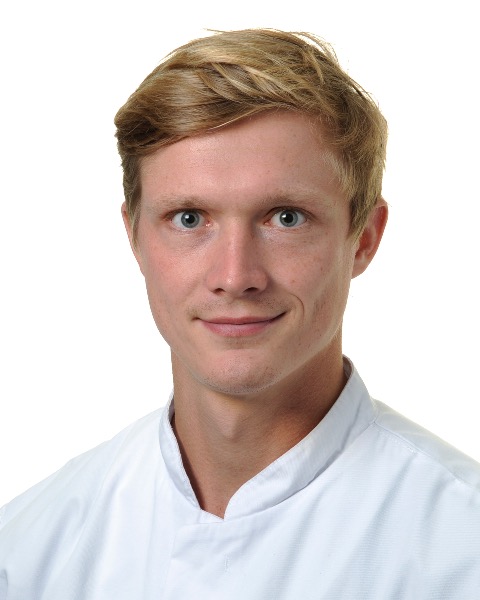Back
Poster, Podium & Video Sessions
Moderated Poster
MP22: Trauma/Reconstruction/Diversion: Urethral Reconstruction (including Stricture, Diverticulum) I
MP22-10: How is health-related quality of life affected by salvage cystectomy and urinary diversion as a last-line option for benign disease
Saturday, May 14, 2022
8:45 AM – 10:00 AM
Location: Room 228
Yannic Volz, Lennert Eismann*, Paulo Pfitzinger, Jan-Friedrich Jokisch, Gerald Schulz, Severin Rodler, Alexander Buchner, Boris Schlenker, Christian Stief, Alexander Kretschmer, Munich, Germany

Lennert Eismann, MD
University Hospital of Munich, LMU
Poster Presenter(s)
Introduction: Radical cystectomy and urinary diversion can impact health-related-quality-of-life (HRQOL). However, less is known about salvage cystectomy when performed as an option for treatment-refractory benign diseases. The current study tries to provide HRQOL data from a contemporary cohort of open salvage cystectomies for benign conditions and give more insight into a delicate topic.
Methods: Overall, 54 consecutive patients were included into this study retrospectively. Only patients undergoing urinary diversion via ileal conduit (IC) were included. Patients that received cystectomy due to cancer were excluded. Complications were assessed via Clavien-Dindo-scale. HRQOL was measured using two validated questionnaires (EORTC QLQ-C30 and QLQ-BLM30). HRQOL QLQ-C30 domains were measured preoperatively and follow-up was up to 3 years. Longitudinal changes were analyzed using Friedman's rank test. Primary endpoint was good general HRQOL based on QLQ-C30 global health status (GHS). Multivariate analysis was performed using binary regression models.
Results: Pain (p=0.005) and fatigue (p=0.002) scores improved significantly as well as social functioning (p=0.038). Furthermore, general HRQOL (GHS scores) improved significantly during the follow-up period (28.0 vs. 50.6 [36mo], p=0.045). In multivariate models the underlying disease for salvage cystectomy could not be identified as an independent predictor for good general HRQOL (OR 0.69, 95%CI, 0.38–1.30, p=0.256). Overall, 10 (41.7%) high-grade (Clavien ³III) 90d-complications were observed. Limitations include limited follow-up rates at respective time-points as well as missing preoperative HRQOL data.
Conclusions: Salvage cystectomy and IC can be safely performed as a last-line treatment for benign conditions and increases general HRQOL in the long-term follow-up. Yet, the procedure of surgery is highly complex and complications should be considered. Thus, it can play a role in a holistic approach for a challenging clinical setting.
Source of Funding: None
Methods: Overall, 54 consecutive patients were included into this study retrospectively. Only patients undergoing urinary diversion via ileal conduit (IC) were included. Patients that received cystectomy due to cancer were excluded. Complications were assessed via Clavien-Dindo-scale. HRQOL was measured using two validated questionnaires (EORTC QLQ-C30 and QLQ-BLM30). HRQOL QLQ-C30 domains were measured preoperatively and follow-up was up to 3 years. Longitudinal changes were analyzed using Friedman's rank test. Primary endpoint was good general HRQOL based on QLQ-C30 global health status (GHS). Multivariate analysis was performed using binary regression models.
Results: Pain (p=0.005) and fatigue (p=0.002) scores improved significantly as well as social functioning (p=0.038). Furthermore, general HRQOL (GHS scores) improved significantly during the follow-up period (28.0 vs. 50.6 [36mo], p=0.045). In multivariate models the underlying disease for salvage cystectomy could not be identified as an independent predictor for good general HRQOL (OR 0.69, 95%CI, 0.38–1.30, p=0.256). Overall, 10 (41.7%) high-grade (Clavien ³III) 90d-complications were observed. Limitations include limited follow-up rates at respective time-points as well as missing preoperative HRQOL data.
Conclusions: Salvage cystectomy and IC can be safely performed as a last-line treatment for benign conditions and increases general HRQOL in the long-term follow-up. Yet, the procedure of surgery is highly complex and complications should be considered. Thus, it can play a role in a holistic approach for a challenging clinical setting.
Source of Funding: None

.jpg)
.jpg)